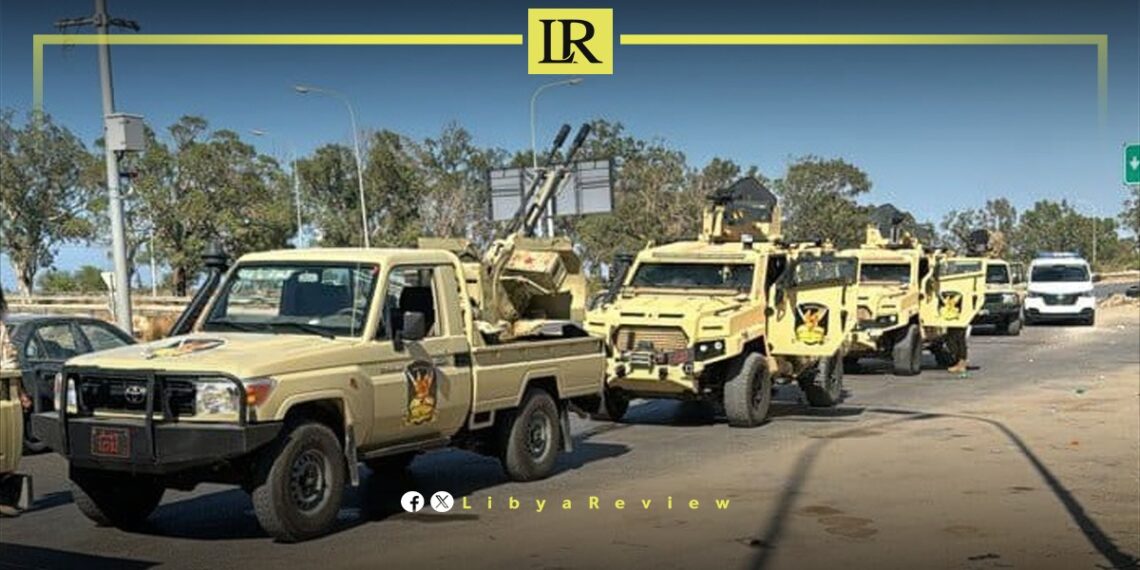Eyewitnesses reported on Saturday evening that a force belonging to the 111th Brigade, led by Abdul Salam Zoubi, has been deployed in Al-Qarabulli and along the Tajoura Road.
According to the witnesses, barriers were removed from the highway in Wadi Al-Rabee following the resolution of clashes in Tajoura.
Earlier, a conflict resolution force began taking control of the contact points between the warring factions.
Additionally, the coastal road in Tajoura, from the eastern gate to the “Biifi” intersection, has been reopened.
On Saturday, the University of Tripoli suspended all classes, exams, and administrative activities across its faculties and departments until further notice. This decision comes in response to escalating security concerns following the outbreak of violence in the Tajoura district since yesterday afternoon.
As of this morning, the coastal road from Tajoura to Qasr Al-Khiyar remains closed due to ongoing tensions. The area is experiencing heightened military activity, with reports of military vehicles being deployed and sporadic gunfire continuing throughout the district.
The clashes in Tajoura, which began on Friday, have resulted in the deaths of at least nine people, according to the Emergency and Ambulance Service. The violence has significantly disrupted life in the capital, leading to road closures and causing widespread alarm.
This latest outbreak of violence is part of a broader pattern of instability that has plagued Libya since the fall of Muammar Gaddafi in 2011. The power vacuum left by Gaddafi’s ousting led to the rise of various armed factions, each seeking control over different regions of the country. Although a ceasefire agreement was signed in October 2020, the situation remains precarious, with ongoing tensions and clashes continuing to disrupt the fragile peace.
Tajoura, located on the outskirts of Tripoli, has been a frequent hotspot for clashes between rival militias. The current round of violence has escalated quickly, leading to a standoff between opposing groups and the closure of key routes in the area.
In response to these developments, Libya’s Presidential Council issued an urgent directive calling for all military units to return to their barracks immediately. The Council warned that unauthorized troop movements could lead to chaos and further destabilize the situation. The directive emphasized that only the Supreme Commander of the Libyan Army, a role held by the Presidential Council, has the authority to mobilize troops.
Despite these warnings, the situation in Tajoura has continued to deteriorate, prompting the University of Tripoli to suspend its operations as a precautionary measure. The decision to close the university underscores the significant impact of the ongoing conflict on education and daily life in Libya. As the violence persists, the risk of further escalation remains high, posing a serious threat to the fragile peace process in the country.


